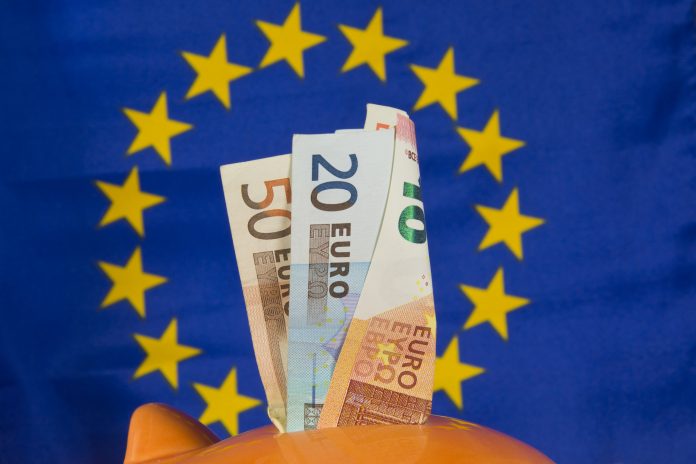In the latest Standard Eurobarometer survey, European citizens identify the economic situation, the state of Member States’ public finances and immigration as the three top concerns
In the new Eurobarometer, 64% of Europeans think that the economic situation is ‘bad’ and 42% of Europeans think that their country’s economy will recover from the adverse effects of the coronavirus outbreak ‘in 2023 or later’.
45% were satisfied compared to 44% who were not satisfied with regards to the measures taken by the EU to fight the pandemic. However, 62% say they trust the EU to make the right decisions in the future, and 60% remain optimistic.
Trust and image of the EU
Trust in the EU has remained stable at 43% while trust in national governments and parliaments has increased. In 15 Member States, the majority of respondents said they trust the EU.
The highest levels were observed in:
- Ireland (73%)
- Denmark (63%)
- Lithuania (59%).
The lowest levels were found in:
- Italy (28%)
- France (30%)
- Greece (32%).
40% of respondents held a positive image of the EU, as did those with a neutral image, however, 19% held a negative image. In 13 EU Member States, the majority of respondents have a positive image of the EU.
- Ireland (71%),
- Poland and Portugal (both 55%).
In 13 other Member States, for the most part, respondents painted a neutral image for the EU.
- Malta (56%)
- Spain, Latvia and Slovenia (all 48%).
Main concerns at EU and national level
35% of citizens mentioned the economic situation as the most pressing issue, followed by 23% who were concerned about the state of Member States’ public finances and immigration (23%).
In the midst of the coronavirus pandemic, health is the fourth most mentioned concern (22%) followed by unemployment (17%). Concerns about the environment and climate change have dropped down to 20%.
The economic situation has also overtaken health as the most important issue at a national level and the importance of unemployment has increased considerably to 28%.
- The rising prices/inflation/cost of living have dropped to 18% (-2%)
- The environment and climate change dropped 14% (-6 percentage points)
- Government debt has increased by 4%, up to 12%
- Mentions of immigration are at their lowest level for the past six years (11%, -5 percentage points)
The current economic situation
The proportion of Europeans who think that the current situation of their national economy is ‘good’ has declined rapidly in the last year by 13% (to 34%), while the proportion of respondents who judge this situation to be ‘bad’ has increased sharply by 14 points to 64%.
At national level, the proportion of respondents who say the situation of their national economy is good ranges from 83% in Luxembourg to 9% in Greece.
The coronavirus pandemic and public opinion in the EU
A majority of respondents in 19 Member States are satisfied with the measures taken by the EU to fight the coronavirus pandemic. The highest positive figures are found in Ireland (71%); Hungary, Romania and Poland (all 60%).
However, in seven countries, a majority of respondents are ‘not satisfied’, particularly in Luxembourg (63%), Italy (58%), Greece and Czechia (both 55%) and Spain (52%). In Austria, equal proportions of respondents are satisfied, and not satisfied (both 47%).
Nevertheless, more than 6 in 10 trust the EU to make the right decisions in the future. The most frequently mentioned priorities for the EU’s response to the coronavirus pandemic are:
- Establish a strategy for facing a similar crisis in the future (37%)
- Develop financial means to find a treatment or vaccine (37%)
- Develop a European health policy (30%)
Overall, 31% of Europeans said that it was fairly easy to cope with the confinement measures, while 25% stated it was fairly difficult to cope with. Finally, 30% say that it was ‘both easy and difficult’.
Key policy areas
When asked about the objectives of the European Green Deal, Europeans continue to identify ‘developing renewable energy’ and ‘fighting against plastic waste and leading on the issue of single-use of plastic’ as the top priorities.
- 38% think the top priority should be supporting EU farmers
- 36% believe it should be promoting the circular economy
- 31% think reducing energy consumption should be the top priority.
Support for the Economic and Monetary Union and for the euro remains high, with 75% in favour of the EU’s single currency. In the EU27 as a whole, support for the euro has increased by 5% to 67%.
EU citizenship and European democracy
Across Ireland and Luxembourg (89%), Poland (83%), Slovakia and Germany (82%), Lithuania (81%), Hungary, Portugal and Denmark (80%), the majority of people feel they are citizens of the EU.
53% say they are satisfied with the way democracy works, but those that are ‘not satisfied’ has increased to 43%.
Optimism for the future of the EU
Finally, 60% of Europeans say they are optimistic about the future of the EU. The highest scores for optimism are recorded in:
- Ireland (81%)
- Lithuania and Poland (both 75%)
- Croatia (74%)
The lowest levels of optimism are seen in:
- Greece (44%)
- Italy (49%)
And opinions were evenly divided in France (49% vs 49%).











